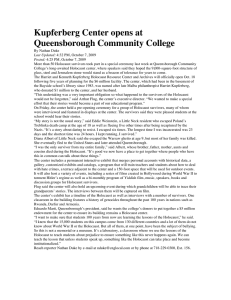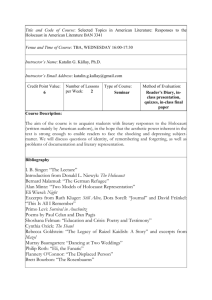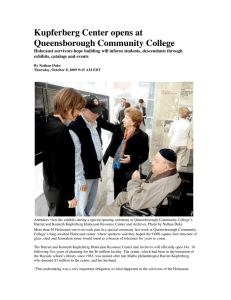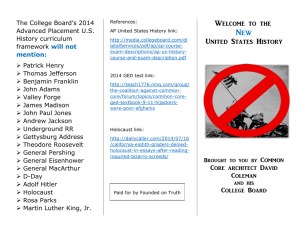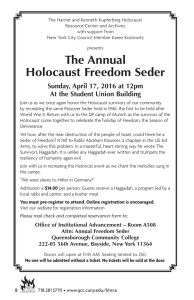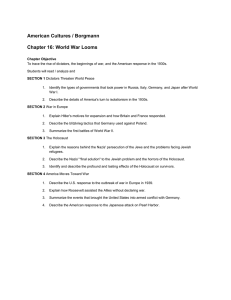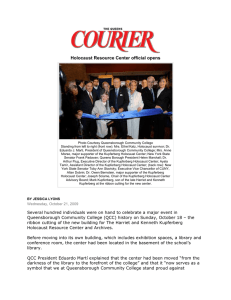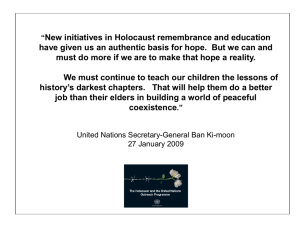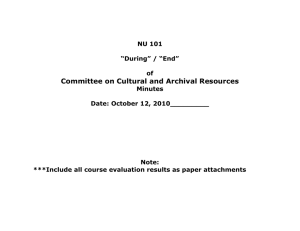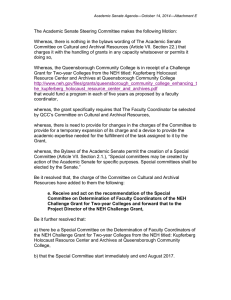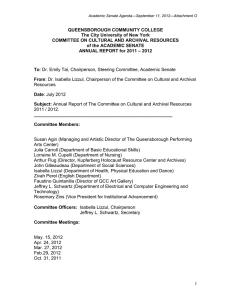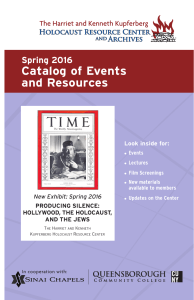TIMES Bayside Israeli official attends Bayside Holocaust center
advertisement
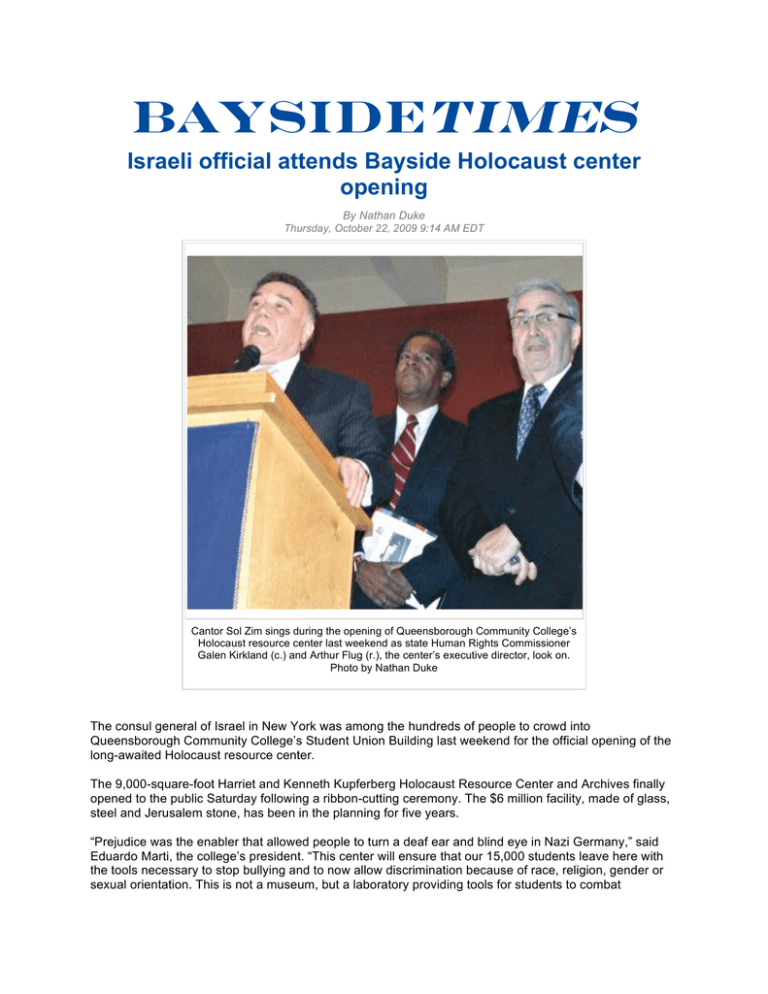
BaysideTIMES Israeli official attends Bayside Holocaust center opening By Nathan Duke Thursday, October 22, 2009 9:14 AM EDT Cantor Sol Zim sings during the opening of Queensborough Community College’s Holocaust resource center last weekend as state Human Rights Commissioner Galen Kirkland (c.) and Arthur Flug (r.), the center’s executive director, look on. Photo by Nathan Duke The consul general of Israel in New York was among the hundreds of people to crowd into Queensborough Community College’s Student Union Building last weekend for the official opening of the long-awaited Holocaust resource center. The 9,000-square-foot Harriet and Kenneth Kupferberg Holocaust Resource Center and Archives finally opened to the public Saturday following a ribbon-cutting ceremony. The $6 million facility, made of glass, steel and Jerusalem stone, has been in the planning for five years. “Prejudice was the enabler that allowed people to turn a deaf ear and blind eye in Nazi Germany,” said Eduardo Marti, the college’s president. “This center will ensure that our 15,000 students leave here with the tools necessary to stop bullying and to now allow discrimination because of race, religion, gender or sexual orientation. This is not a museum, but a laboratory providing tools for students to combat prejudice. We are an oasis of hope.” The center, which had been located in the basement of the school’s library since 1983, was named after late Malba philanthropist Harriet Kupferberg, who donated $1 million to the center, and her husband. Asaf Shariv, consul general of Israel in New York, spoke to the crowd of several hundred people at the center’s opening. “We cannot stop using the words ‘never again’ because the Holocaust is part of our education and our history,” he said. The Rev. Patrick Flannigan of St. John’s University’s campus ministry delivered the ceremony’s invocation, while Hollis Hills Cantor Sol Zim sang the national anthem. The center includes a permanent interactive exhibit that merges personal accounts with historical data, a gallery, customized exhibits and catalogs, a program that will train teachers and students about how to deal with hate crimes, a terrace adjacent to the center and a 150-foot space that will be used to host outdoor events. Arthur Flug, the center’s executive director, said the site is unique because of its internship program, which brought together Queensborough students and Holocaust survivors, whose interaction was captured on film and displayed at the center. “This is a building of stories — stories that must continue to be told after the last survivor is gone,” Flug said. “The torch has been passed and the message must be repeated or the lessons will be lost.”
